Hong Kong News

Can Ocean Park, Hong Kong Disneyland survive the coronavirus?
Meerkat stars Charles, Jeff, Yan and the rest of their family keep darting about the newly opened African-styled pavilion at Ocean Park when caretaker Chau Wang-fei arrives.
The squirrel-sized animals immediately stand in a line on a rock and wait for him to put worms into their mouths, with a little one trying to get his attention by patting his leg.
“We are like friends,” said Chau, 32. “Meerkats live in a family. They often resist outsiders. When they touch us, it means they have begun treating us as one of them.”
The 43-year-old theme park in Aberdeen is more than a workplace for Chau. When he was a boy, his mother took him there every week to see the animals, sparking a lifelong attachment.
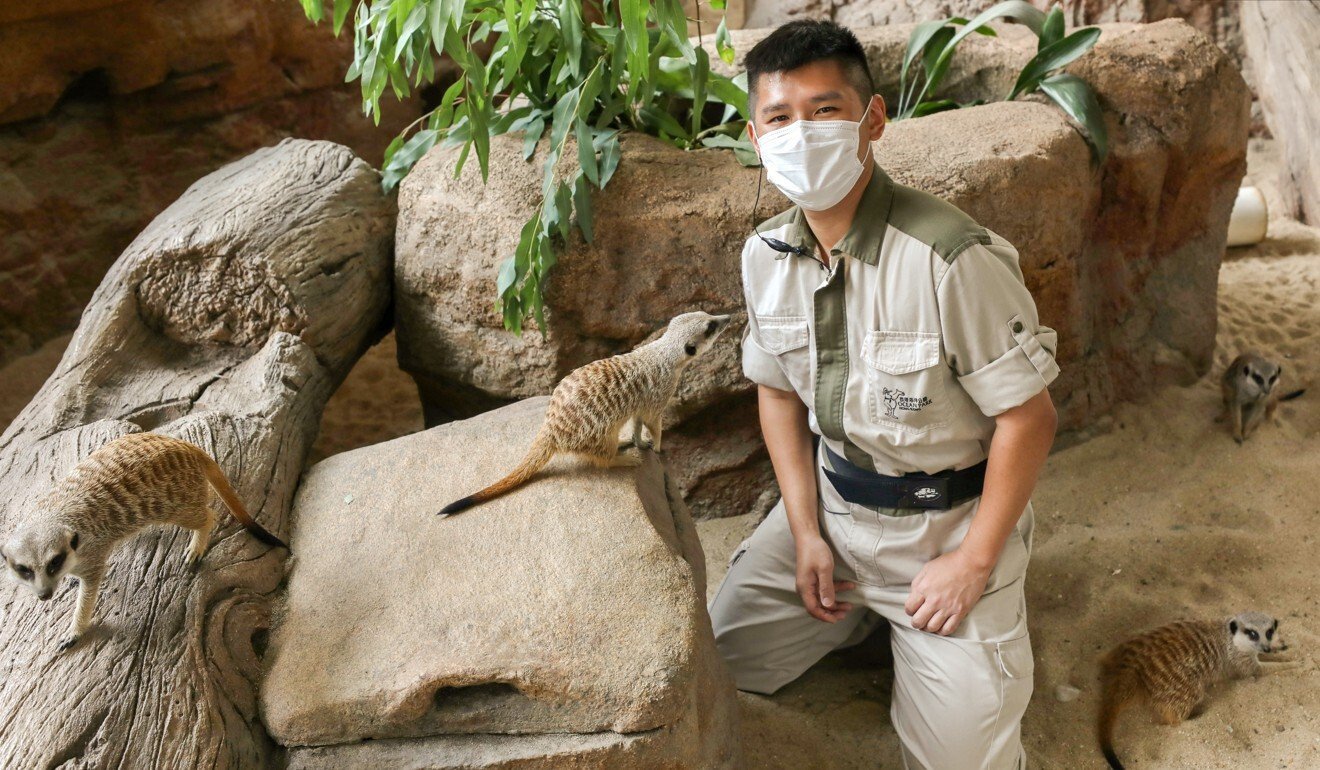
Despite securing a HK$5.4 billion (US$700 million) government lifeline in May to avoid bankruptcy and stay afloat for another year, questions about the park’s longer-term survival remain, as four years of consecutive losses have been compounded by the coronavirus pandemic.
Chau, for one, is saddened by talk that Ocean Park might close one day. “I will definitely miss this place,” he said.
The city’s other theme park, Hong Kong Disneyland Resort, on Lantau Island, has also been struggling and faces uncertainty. Last month, the government announced it would not extend an option for the resort to buy a large adjacent site.
All signs point to both theme parks sinking deeper into losses this year. They were forced to close for more than 200 days over two rounds of coronavirus social-distancing restrictions.
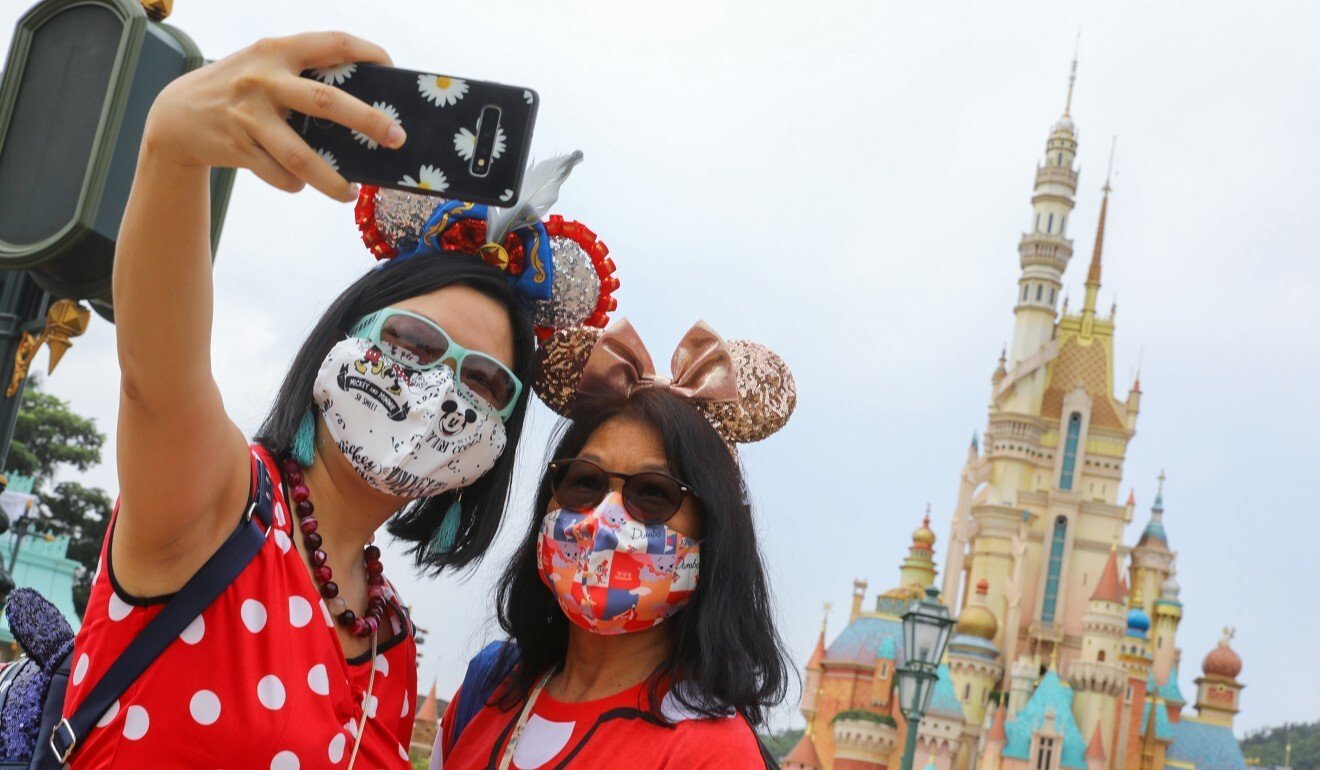
They reopened for the second time in September, but with global travel at a standstill, both must now find ways to tap Hong Kong’s 7.5 million people to keep going.
Former Ocean Park chairman Allan Zeman, credited with reviving its fortunes after the severe acute respiratory syndrome (Sars) outbreak of 2003, said both theme parks must do their utmost to stay open all year round despite the ongoing pandemic.
“Just closing the business kills the business,” he said.
Before the virus struck, spending at theme parks in Hong Kong was forecast by an international industry body to remain flat at US$816 million (HK$6.4 billion) this year.
Zeman could not predict how bad the figure might actually be now, but expected it would be dire, as both attractions must cover operating expenses without an income.
“They have not built up huge reserves, because they have not made big profits,” he said.
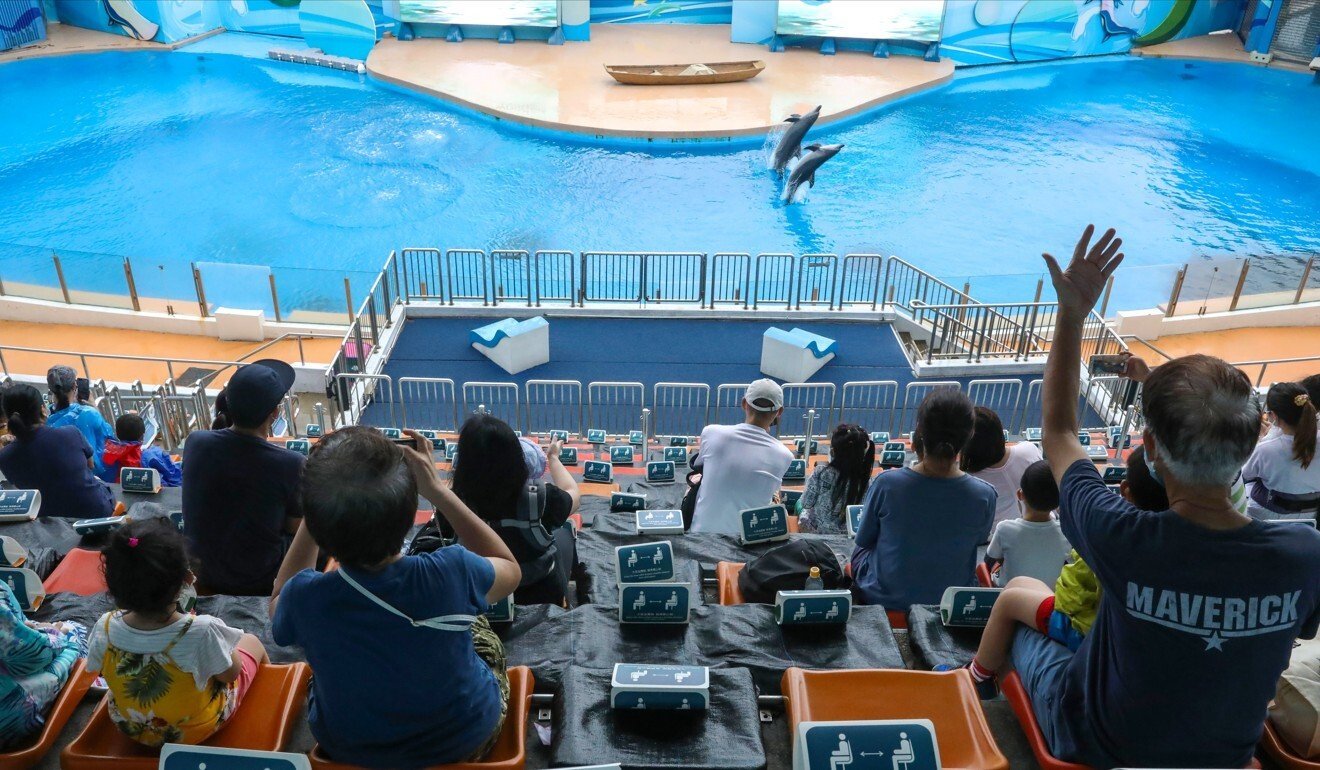
Ocean Park, with about 2,000 full-time employees, has recorded successive annual deficits exceeding HK$200 million since its 2015-16 financial year, including a massive HK$557 million shortfall in the last financial year.
Since 2014 it has faced intense competition from new ocean-themed attractions in Zhuhai, in neighbouring Guangdong province, run by the Chimelong Group, China’s leading amusement park operator.
Disneyland has more than 5,500 full-time workers, according to its latest business review, and has not fared much better. Since opening in 2005, it has been profitable just three times, from 2012 to 2014.
It posted net losses for five consecutive financial years from 2015. When tourism took a major hit during last year’s social unrest, its 2018-19 losses mounted to HK$105 million, nearly double the HK$54 million loss the year before.
‘Keep giving people new reasons to come’
Business magnate Zeman, founder of the Lan Kwai Fong nightlife district, believes a crisis is the time to pull out all the stops to bring back the crowds.
He helped Ocean Park turn a HK$4.1 million deficit for the financial year 2002-03 into a HK$95.7 million surplus a year later.
He said his magic trick was to roll out new events every six weeks, announcing them at exciting press conferences planned for maximum publicity. Sometimes he appeared as a jellyfish or a vampire, and it was a photo opportunity.
“I used to dress up in crazy costumes. We kept up coming up with new events, giving people a reason to keep coming back,” he said.
Zeman never had to contend with pandemic-related restrictions, however. Under current social-distancing rules, the theme parks have to run at no more than half capacity and guests must wear masks.
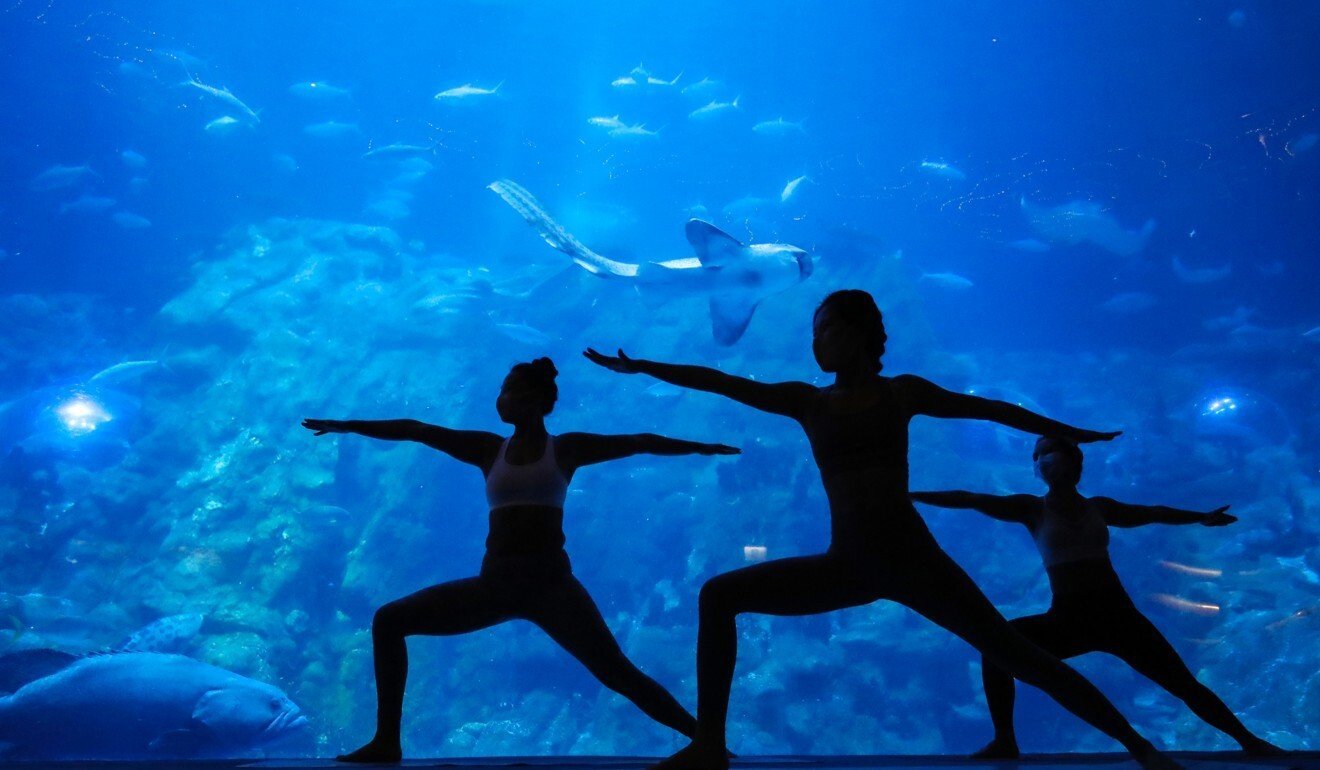
Both theme parks were closed twice this year after the initial Covid-19 outbreak in January, and again after the third wave of infections struck in July.
The first time Ocean Park reopened, from June 13 to July 13, attendance was down 90 per cent year on year for the short window. After it reopened the second time on September 18, it ran at only 20 to 30 per cent of capacity initially, welcoming just 7,200 to 10,800 visitors a day.
Current chairman Lau Ming-wai is banking on staycations, lower entry prices and new activities to get people to come.
From November, furnished air-conditioned tents will be available, with prices expected to be under HK$3,000 per night for four people.
Starting this month, ticket holders can pay HK$80 to do yoga at the aquarium or while paddle boarding on its Aqua City Lagoon. Alternatively they can go on a hike.
The admission fee for Hong Kong adults has been lowered from HK$498 to HK$320, and unlimited entry for six months is available with a special HK$498 pass.
“These are just the immediate changes we can make to bring new experiences without having major construction and huge expenditures,” Lau said.
Frequent visitor Jerry Leung, 37, a restaurant owner, said he would consider taking his wife and two children to try camping at the park, as the price was reasonable.
The annual pass holder, who usually visits three or four times a year, liked the new hiking experience for the scenic views but thought the yoga sessions were awkward.
Still, he is looking forward to the day when restrictions on attendance are eased. “When the park organises mass events, I find them very appealing,” he said.
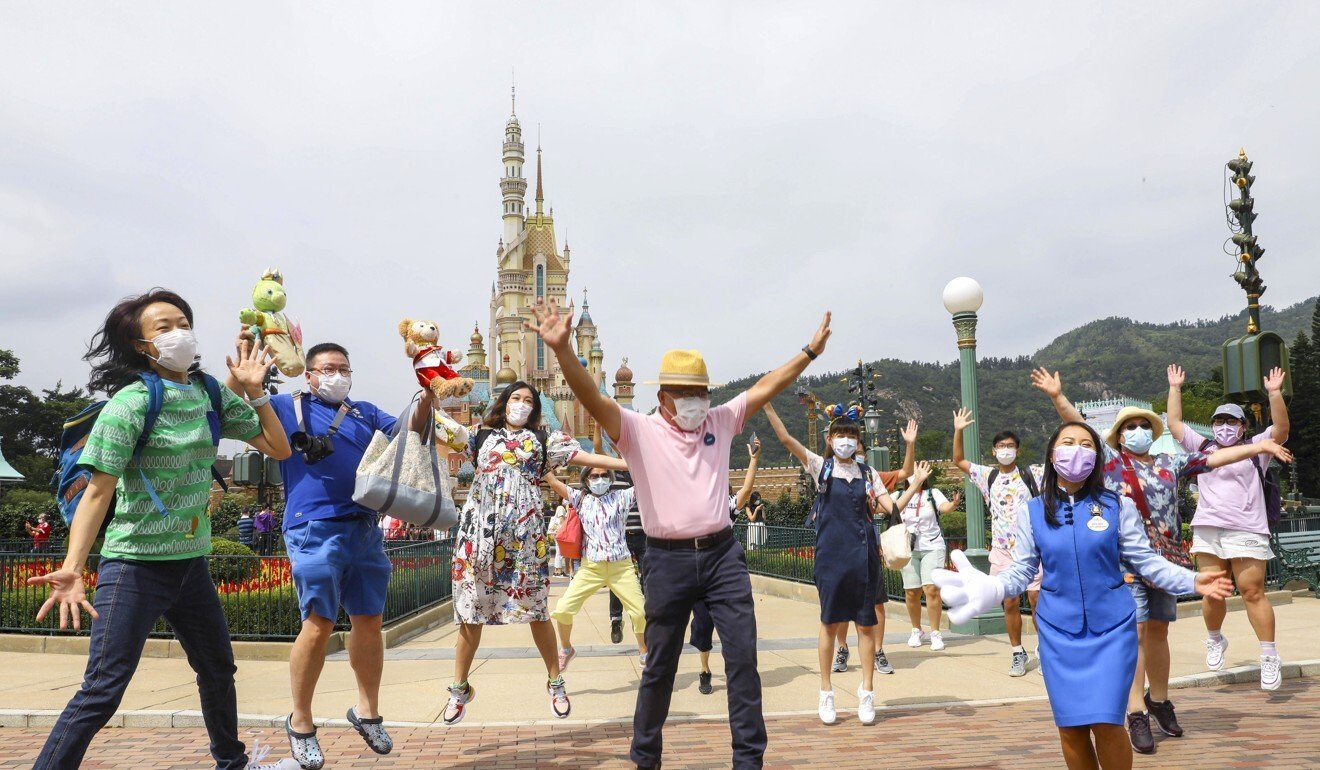
New deals for Disneyland visitors
Disneyland closed on January 26 and resumed business on June 18, only to close again in mid-July.
Since reopening for the second time on September 25, it has been open just five days a week, closing on Tuesdays and Thursdays except for public holidays and designated special occasions.
To attract Hong Kong residents, it introduced a room-and-breakfast staycation deal starting from HK$1,378, and guests can learn how to make Disney character dim sum or cocktails.
For HK$1,278, the price of two one-day tickets, three adults are allowed entry.
The theme park has more to come under an ongoing HK$10.9 billion expansion plan that includes the upgraded Castle of Magical Dreams – to be opened later this year – as well as a Frozen-themed area and Avengers superheroes zone to come later.
A source said the park was hoping to unveil the revamped castle before Christmas and it would be the focus of events planned for its upcoming 15th anniversary celebrations.
With the pandemic now in its ninth month, the government cited current economic conditions when it recently decided against renewing Disneyland’s purchase option on a 60-hectare (148 acres) plot in neighbouring Penny’s Bay.
The Walt Disney Company expressed disappointment, but sources told the Post it could not commit to developing the site any time soon.
Tourism sector lawmaker Yiu Si-wing described the government’s move as pragmatic, saying: “We can’t see Disneyland using the land in the next five years.”
But he thought the park’s upcoming projects were promising.
Student Yoyo Lee, 14, who was at Disneyland with three friends after it reopened last month, said she only visited once a year in the past because she found the ticket prices too costly.
“Now it’s not expensive. There are also spots for me to take photos, and the merchandise is so beautiful,” said Lee, adding that she was looking forward to visiting more frequently.
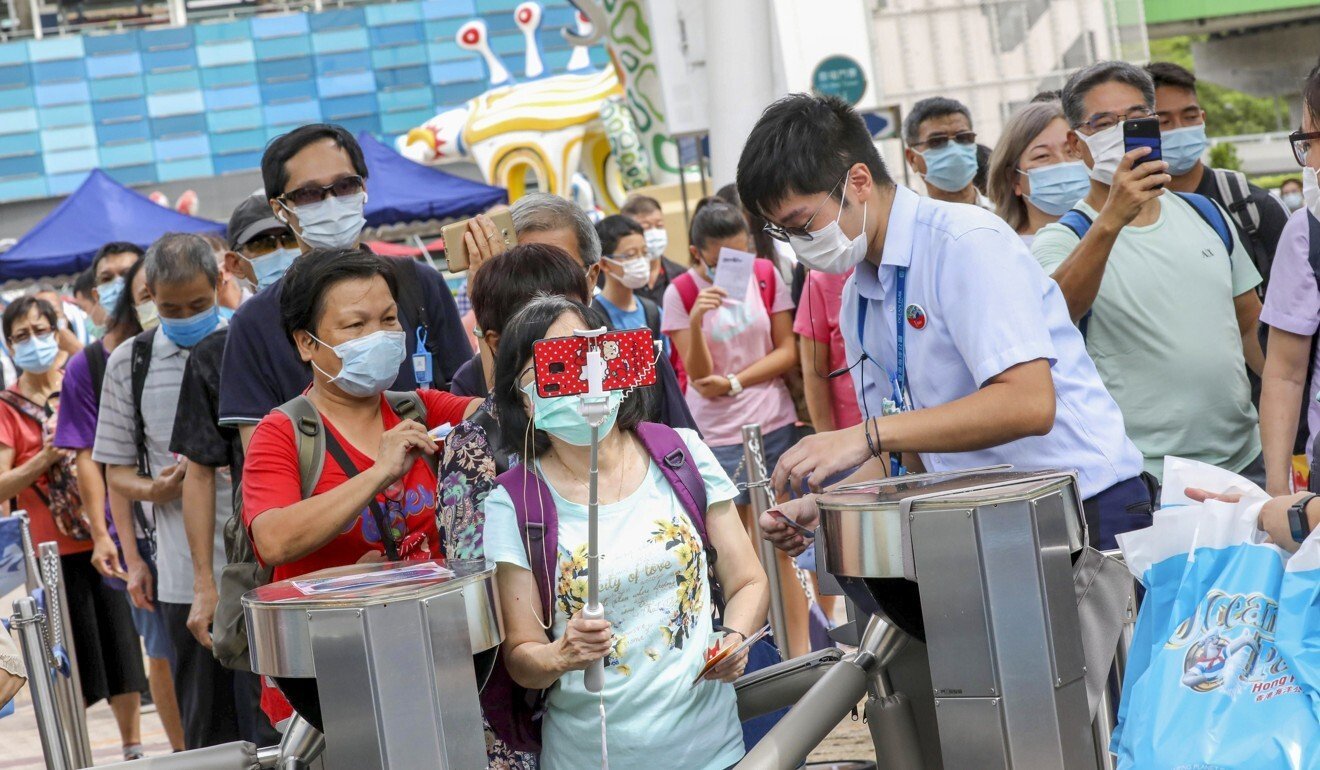
‘Time to aim for quality, not size’
Despite the efforts being made by the two theme parks, Perry Yiu Pak-leung, deputy chairman at China Travel Service (Hong Kong), said it would prove a challenge to depend on local guests.
“For the whole tourism industry, not many companies can sustain their business by just relying on Hong Kong’s population,” he said.
Even after mainland visitors returned, he said, Ocean Park would continue to face stiff competition from Guangdong’s animal-themed attractions.
He said Ocean Park became less attractive to mainlanders after the Chimelong Ocean Kingdom opened in Zhuhai in 2014 with Chinese white dolphins and beluga whales among its attractions.
He thought Disneyland had more of an advantage with its global brand and different theme from the mainland attractions.
“Although Shanghai has a Disneyland, the Hong Kong park is still attractive to those living in Guangdong,” he said.
While slashing ticket prices was unavoidable now, Professor John Ap of the Macau Institute for Tourism Studies warned of potential risks.
He said theme parks must be careful when they cut prices, because guests who get used to paying less would resist any return to higher prices.
Businesses that do not resume charging their pre-pandemic prices might face losses eventually.
“Cutting prices, yes, you might get the numbers with that,” he said, adding that what mattered was not volume but yield. “More is not necessarily better.”
Brian King, associate dean of Polytechnic University’s School of Hotel and Tourism Management, thought Disneyland’s loss of the site for potential expansion would not affect its appeal, and in the post-pandemic era, expansion might not be the only way to go.
“Maybe we need to go beyond ‘the bigger the better’. Maybe we need to imagine just going for quality,” he said.
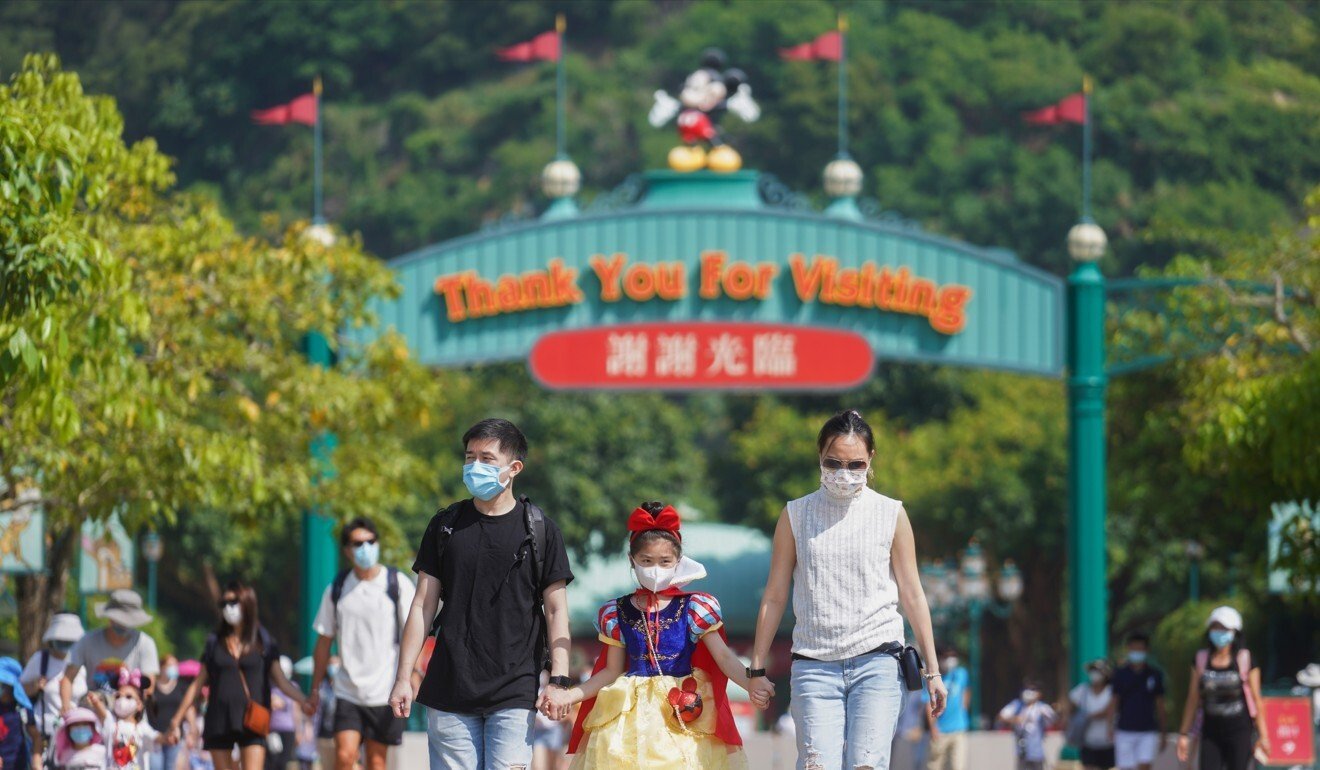
He was confident Hong Kong’s attractions would retain their appeal despite operational adjustments because of the pandemic.
“I certainly wouldn’t forecast the death of theme parks,” he said.
Pointing to the tourism revival on the mainland, he noted that people liked to go to resorts or quiet places.
He said Hong Kong’s theme parks offered a resort-type experience with fresh air and outdoor settings, and technology could help them remove the unhealthy impression of queues.
“Less crowded means less money, of course, so that will encourage acceleration of the use of technological solutions,” he said. “Probably in the next generation of theme parks, they’ll have to use technology to customise the experience, even if people have to pay extra.”
To raise their game, he said the two theme parks should use social media to understand what particular groups of people liked to do and move away from mass planning.
If consumers found the experiences on offer meaningful, they would go to the theme parks, he said.
“They have to win over the hearts of the Hong Kong community, so that Ocean Park or Disney are seen as warm, welcoming places to go and share with people you are close to,” he said.











